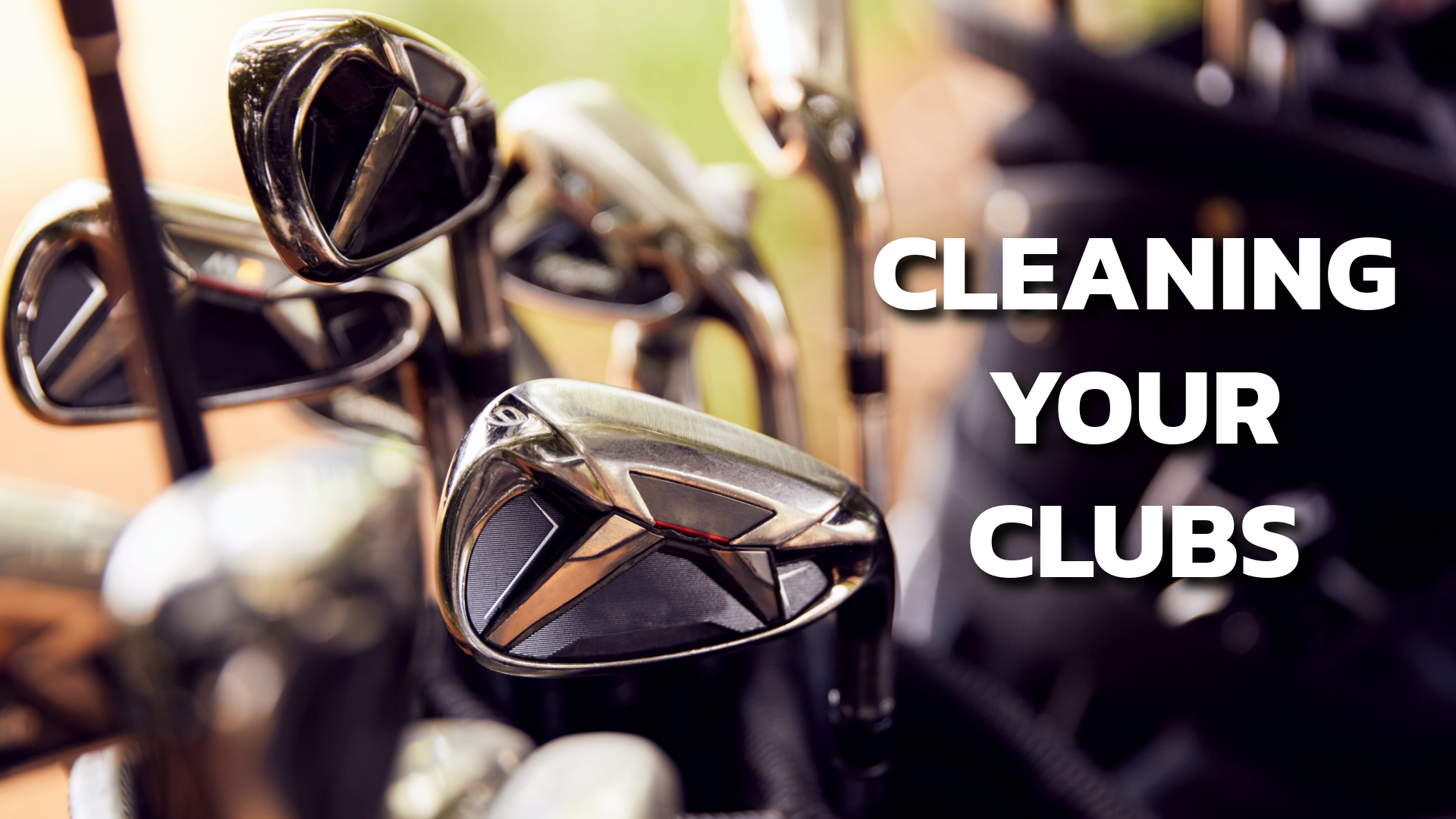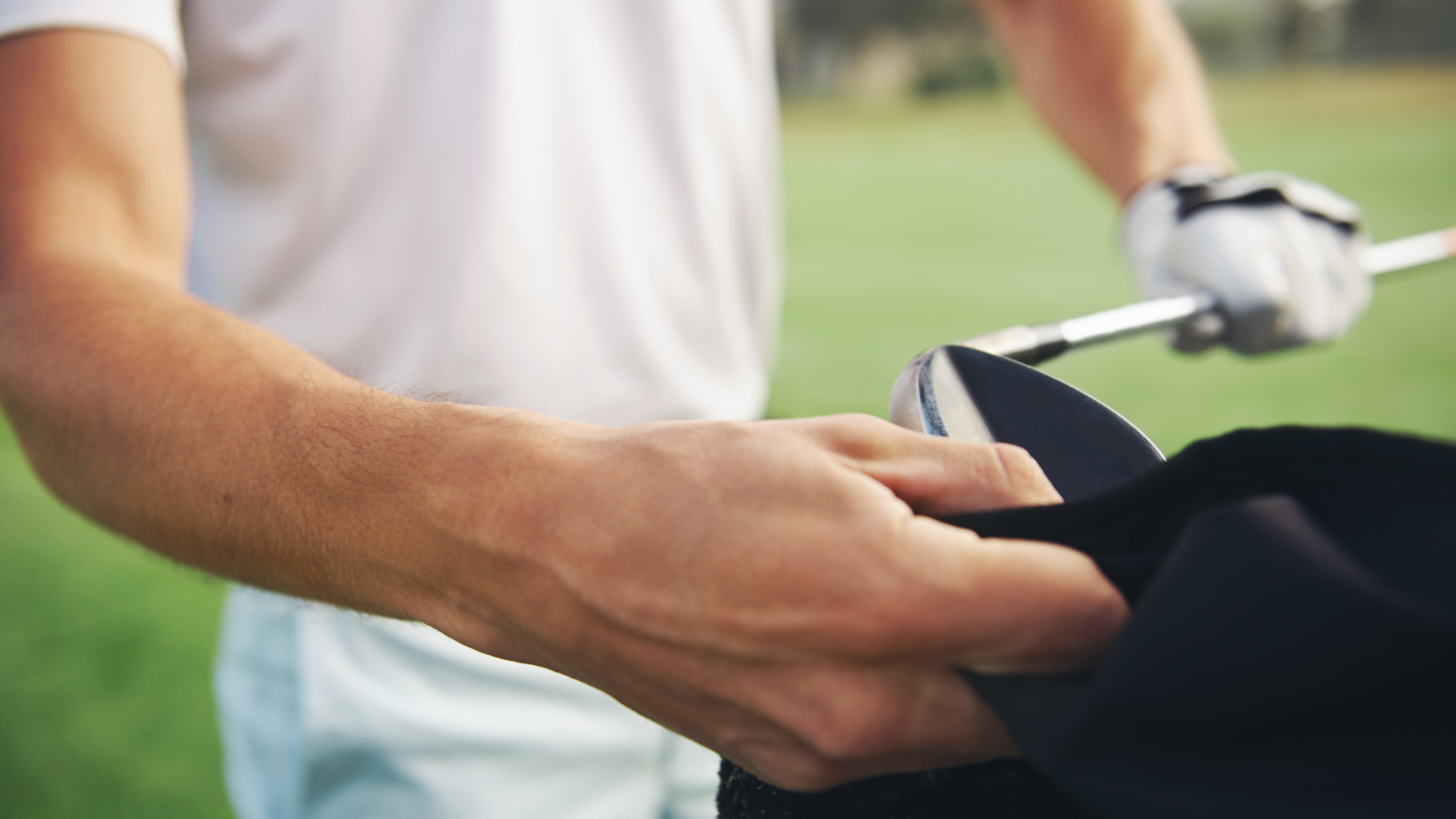
If you’re out on the course, one stroke down, you want to be able to pull out your driver with the utmost confidence. Now imagine you pull out a scuffed, dirty club. That’s not a great start to your drive, is it?
If you’ve been around the game of golf for a while, you may remember the old wire brushes pros and amateurs alike used to clean golf clubs. As technology advanced and golf pros learned more about equipment, it was discovered these brushes were actually damaging golf clubs.
It’s not just about looks either – cleaning your golf clubs the right way means cleaner shots and more success on the course. We’ve compiled our best tips on how to clean golf clubs and keep your equipment in great condition for years to come.
Overview of Modern Golf Club Metals and Materials
Let’s start out with some basic information about what types of materials your newer clubs may contain. Not all modern equipment is made with traditional metal clubheads more popular in the past. Here are a few dos and don’ts when it comes to modern materials.
- Raw Faced Wedges: don’t scrub to remove rust, never submerge in water, and use a damp cloth to wipe off dirt and debris
- Carbon faced clubs: do use a damp cloth to spot clean, don’t use abrasive cleaners or brushes
- Titanium heads: don’t use steel wool or metal brushes as they’ll damage the surface
- Forged Irons: do dry after cleaning, don’t use abrasive cleaners
How To Clean Golf Clubs
How you clean golf clubs will vary, depending on if you’re home and doing a deep clean, or on the course with quick maintenance between holes.
We’ll go over a basic rundown for either situation here! Golf club cleaning is similar to house cleaning; if you stay on top of it and do a little at a time, it saves you a lot of time in the long run.

Irons and Wedges
Golf irons and wedges should be wiped down after each shot you take. Keep a towel on your golf bag that is partially wet and partially dry (you can keep a water bottle with you to dampen the cloth). After your shot, wipe the club with the wet end of the towel, then dry it and put it back in the bag.
When you are doing a deep cleaning, which you may want to do about once a month, you can submerge your iron heads in a bucket of warm, soapy water for about ten minutes. Pull each one out individually and use a soft-bristled brush to clean.
Dip the club back in to rinse, dry it, and put it back in the bag.
Woods
Luckily, woods don’t tend to get quite as dirty as the irons. Make sure you use a microfiber cloth for these types of golf clubs. Soft-bristled brushes could risk some damage if they are used incorrectly.
Instead, when you are finished hitting, use a wet microfiber towel to clean the wood. When you do your monthly deep cleaning, do the same thing; a little elbow grease and a wet cloth should have them looking brand new.
Putters
Your putter should not get overly dirty because of the way it’s used on the course. However, it makes sense to wipe your putter down before putting it back in the headcover, to create a good habit out of it.
It’s important to keep in mind putting greens are typically filled with fertilizer and sand, and over time, these could ruin the finish on your putter. To prevent this, always keep your headcover on the putter when not in use.
Grips
The one area of the golf clubs that golfers often forget to clean is the grips. Grips carry dirt, debris, germs, and more, so keeping them clean makes sense.
Never submerge a golf grip to clean it; the materials used are designed to get that wet, and it can decrease the longevity of the golf grip.
Instead, take a wet microfiber cloth (it can even have a small amount of soapy water on it) and rub the golf grips. You can add a little force here to get out some of the oils that sometimes get transferred to the grip.
Let the grip dry completely (and avoid direct sunlight) before placing it back in your golf bag.
Cleaning your golf clubs the right way means cleaner shots and more success on the course.
How To Handle Rust on Golf Clubs
Some golf clubs are designed to rust.
Wedge manufacturers like Titleist and Cleveland make raw wedges to encourage a softer feel and more natural impact. If your golf club is a wedge that is rusting naturally, let it be, as this is intended!
However, if you played a round of golf in the rain and didn’t dry your clubs, you may have an entirely different rust situation.
In this case, put a little bit of distilled white vinegar on a microfiber cloth. Rub the areas where rust has started to accumulate, and it should come right off. After you have removed the rust, wipe the clubs with a clean cloth and then dry them before storing them.
Tips To Improve Golf Club Longevity
Golf clubs have a decent lifespan, and they will last a long time when you take care of them. Here are some important tips you can use to help increase the longevity of your golf clubs and enjoy them round after round.
- Washing clubs is important, but drying them is just as important. Never store golf clubs that are wet without drying first.
- Choose a golf bag that protects the shafts of your clubs and keeps clubheads separate when walking or riding with the clubs.
- A golf brush that also dispenses a little water as it cleans can be a great way to work on dirty clubs with packed grooves.
- In a pinch, a golf tee or even a toothpick can work to clean out those grooves.
- Mild soap (like Dawn Original) and water should be all you need to clean clubs; specialized cleaners often aren’t worth the hassle or cost.
- When doing a monthly deep clean of your golf clubs, do a quick inspection of the shafts and grips to make sure there is no damage or major signs of wear that need attention.
- Before you head out for a round of golf, wash your hands! Getting oils, dirt, and sunscreen off your hands before you play will help your grips last.
Now that you have all the details, go ahead and take a look at your golf clubs and see if they are ready for a cleaning. Having clean grooves on your clubs will make all the difference when trying to create backspin and consistency in your shots. Playing great golf requires a lot of precision and accuracy, and you shouldn’t lose any of that by having dirty golf clubs.

